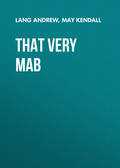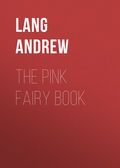
Lang Andrew
Alfred Tennyson
And one morning in the summer time they were upon their couch, and Geraint lay upon the edge of it. And Enid was without sleep in the apartment which had windows of glass. And the sun shone upon the couch. And the clothes had slipped from off his arms and his breast, and he was asleep. Then she gazed upon the marvellous beauty of his appearance, and she said, “Alas, and am I the cause that these arms and this breast have lost their glory and the warlike fame which they once so richly enjoyed!” And as she said this, the tears dropped from her eyes, and they fell upon his breast. And the tears she shed, and the words she had spoken, awoke him; and another thing contributed to awaken him, and that was the idea that it was not in thinking of him that she spoke thus, but that it was because she loved some other man more than him, and that she wished for other society, and thereupon Geraint was troubled in his mind, and he called his squire; and when he came to him, “Go quickly,” said he, “and prepare my horse and my arms, and make them ready. And do thou arise,” said he to Enid, “and apparel thyself; and cause thy horse to be accoutred, and clothe thee in the worst riding-dress that thou hast in thy possession. And evil betide me,” said he, “if thou returnest here until thou knowest whether I have lost my strength so completely as thou didst say. And if it be so, it will then be easy for thee to seek the society thou didst wish for of him of whom thou wast thinking.” So she arose, and clothed herself in her meanest garments. “I know nothing, Lord,” said she, “of thy meaning.” “Neither wilt thou know at this time,” said he.
“At last, it chanced that on a summer morn
(They sleeping each by either) the new sun
Beat thro’ the blindless casement of the room,
And heated the strong warrior in his dreams;
Who, moving, cast the coverlet aside,
And bared the knotted column of his throat,
The massive square of his heroic breast,
And arms on which the standing muscle sloped,
As slopes a wild brook o’er a little stone,
Running too vehemently to break upon it.
And Enid woke and sat beside the couch,
Admiring him, and thought within herself,
Was ever man so grandly made as he?
Then, like a shadow, past the people’s talk
And accusation of uxoriousness
Across her mind, and bowing over him,
Low to her own heart piteously she said:
‘O noble breast and all-puissant arms,
Am I the cause, I the poor cause that men
Reproach you, saying all your force is gone?
I am the cause, because I dare not speak
And tell him what I think and what they say.
And yet I hate that he should linger here;
I cannot love my lord and not his name.
Far liefer had I gird his harness on him,
And ride with him to battle and stand by,
And watch his mightful hand striking great blows
At caitiffs and at wrongers of the world.
Far better were I laid in the dark earth,
Not hearing any more his noble voice,
Not to be folded more in these dear arms,
And darken’d from the high light in his eyes,
Than that my lord thro’ me should suffer shame.
Am I so bold, and could I so stand by,
And see my dear lord wounded in the strife,
Or maybe pierced to death before mine eyes,
And yet not dare to tell him what I think,
And how men slur him, saying all his force
Is melted into mere effeminacy?
O me, I fear that I am no true wife.’
Half inwardly, half audibly she spoke,
And the strong passion in her made her weep
True tears upon his broad and naked breast,
And these awoke him, and by great mischance
He heard but fragments of her later words,
And that she fear’d she was not a true wife.
And then he thought, ‘In spite of all my care,
For all my pains, poor man, for all my pains,
She is not faithful to me, and I see her
Weeping for some gay knight in Arthur’s hall.’
Then tho’ he loved and reverenced her too much
To dream she could be guilty of foul act,
Right thro’ his manful breast darted the pang
That makes a man, in the sweet face of her
Whom he loves most, lonely and miserable.
At this he hurl’d his huge limbs out of bed,
And shook his drowsy squire awake and cried,
‘My charger and her palfrey’; then to her,
‘I will ride forth into the wilderness;
For tho’ it seems my spurs are yet to win,
I have not fall’n so low as some would wish.
And thou, put on thy worst and meanest dress
And ride with me.’ And Enid ask’d, amazed,
‘If Enid errs, let Enid learn her fault.’
But he, ‘I charge thee, ask not, but obey.’
Then she bethought her of a faded silk,
A faded mantle and a faded veil,
And moving toward a cedarn cabinet,
Wherein she kept them folded reverently
With sprigs of summer laid between the folds,
She took them, and array’d herself therein,
Remembering when first he came on her
Drest in that dress, and how he loved her in it,
And all her foolish fears about the dress,
And all his journey to her, as himself
Had told her, and their coming to the court.”
Tennyson’s
“Arms on which the standing muscle sloped,
As slopes a wild brook o’er a little stone,
Running too vehemently to break upon it,”
is suggested perhaps by Theocritus – “The muscles on his brawny arms stood out like rounded rocks that the winter torrent has rolled and worn smooth, in the great swirling stream” (Idyll xxii.)
The second part of the poem follows the original less closely. Thus Limours, in the tale, is not an old suitor of Enid; Edyrn does not appear to the rescue; certain cruel games, veiled in a magic mist, occur in the tale, and are omitted by the poet; “Gwyffert petit, so called by the Franks, whom the Cymry call the Little King,” in the tale, is not a character in the Idyll, and, generally, the gross Celtic exaggerations of Geraint’s feats are toned down by Tennyson. In other respects, as when Geraint eats the mowers’ dinner, the tale supplies the materials. But it does not dwell tenderly on the reconciliation. The tale is more or less in the vein of “patient Grizel,” and he who told it is more concerned with the fighting than with amoris redintegratio, and the sufferings of Enid. The Idyll is enriched with many beautiful pictures from nature, such as this: —
“But at the flash and motion of the man
They vanish’d panic-stricken, like a shoal
Of darting fish, that on a summer morn
Adown the crystal dykes at Camelot
Come slipping o’er their shadows on the sand,
But if a man who stands upon the brink
But lift a shining hand against the sun,
There is not left the twinkle of a fin
Betwixt the cressy islets white in flower;
So, scared but at the motion of the man,
Fled all the boon companions of the Earl,
And left him lying in the public way.”
In Balin and Balan Tennyson displays great constructive power, and remarkable skill in moulding the most recalcitrant materials. Balin or Balyn, according to Mr Rhys, is the Belinus of Geoffrey of Monmouth, “whose name represents the Celtic divinity described in Latin as Apollo Belenus or Belinus.” 14 In Geoffrey, Belinus, euphemerised, or reduced from god to hero, has a brother, Brennius, the Celtic Brân, King of Britain from Caithness to the Humber. Belinus drives Brân into exile. “Thus it is seen that Belinus or Balyn was, mythologically speaking, the natural enemy” (as Apollo Belinus, the radiant god) “of the dark divinity Brân or Balan.”
If this view be correct, the two brothers answer to the good and bad principles of myths like that of the Huron Iouskeha the Sun, and Anatensic the Moon, or rather Taouiscara and Iouskeha, the hostile brothers, Black and White. 15 These mythical brethren are, in Malory, two knights of Northumberland, Balin the wild and Balan. Their adventures are mixed up with a hostile Lady of the Lake, whom Balin slays in Arthur’s presence, with a sword which none but Balin can draw from sheath; and with an evil black-faced knight Garlon, invisible at will, whom Balin slays in the castle of the knight’s brother, King Pellam. Pursued from room to room by Pellam, Balin finds himself in a chamber full of relics of Joseph of Arimathea. There he seizes a spear, the very spear with which the Roman soldier pierced the side of the Crucified, and wounds Pellam. The castle falls in ruins “through that dolorous stroke.” Pellam becomes the maimed king, who can only be healed by the Holy Grail. Apparently Celtic myths of obscure antiquity have been adapted in France, and interwoven with fables about Joseph of Arimathea and Christian mysteries. It is not possible here to go into the complicated learning of the subject. In Malory, Balin, after dealing the dolorous stroke, borrows a strange shield from a knight, and, thus accoutred, meets his brother Balan, who does not recognise him. They fight, both die and are buried in one tomb, and Galahad later achieves the adventure of winning Balin’s sword. “Thus endeth the tale of Balyn and of Balan, two brethren born in Northumberland, good knights,” says Malory, simply, and unconscious of the strange mythological medley under the coat armour of romance.
The materials, then, seemed confused and obdurate, but Tennyson works them into the course of the fatal love of Lancelot and Guinevere, and into the spiritual texture of the Idylls. Balin has been expelled from Court for the wildness that gives him his name, Balin le Sauvage. He had buffeted a squire in hall. He and Balan await all challengers beside a well. Arthur encounters and dismounts them. Balin devotes himself to self-conquest. Then comes tidings that Pellam, of old leagued with Lot against Arthur, has taken to religion, collects relics, claims descent from Joseph of Arimathea, and owns the sacred spear that pierced the side of Christ. But Garlon is with him, the knight invisible, who appears to come from an Irish source, or at least has a parallel in Irish legend. This Garlon has an unknightly way of killing men by viewless blows from the rear. Balan goes to encounter Garlon. Balin remains, learning courtesy, modelling himself on Lancelot, and gaining leave to bear Guinevere’s Crown Matrimonial for his cognisance, – which, of course, Balan does not know, —
“As golden earnest of a better life.”
But Balin sees reason to think that Lancelot and Guinevere love even too well.
“Then chanced, one morning, that Sir Balin sat
Close-bower’d in that garden nigh the hall.
A walk of roses ran from door to door;
A walk of lilies crost it to the bower:
And down that range of roses the great Queen
Came with slow steps, the morning on her face;
And all in shadow from the counter door
Sir Lancelot as to meet her, then at once,
As if he saw not, glanced aside, and paced
The long white walk of lilies toward the bower.
Follow’d the Queen; Sir Balin heard her ‘Prince,
Art thou so little loyal to thy Queen,
As pass without good morrow to thy Queen?’
To whom Sir Lancelot with his eyes on earth,
‘Fain would I still be loyal to the Queen.’
‘Yea so,’ she said, ‘but so to pass me by —
So loyal scarce is loyal to thyself,
Whom all men rate the king of courtesy.
Let be: ye stand, fair lord, as in a dream.’
Then Lancelot with his hand among the flowers,
‘Yea – for a dream. Last night methought I saw
That maiden Saint who stands with lily in hand
In yonder shrine. All round her prest the dark,
And all the light upon her silver face
Flow’d from the spiritual lily that she held.
Lo! these her emblems drew mine eyes – away:
For see, how perfect-pure! As light a flush
As hardly tints the blossom of the quince
Would mar their charm of stainless maidenhood.’
‘Sweeter to me,’ she said, ‘this garden rose
Deep-hued and many-folded sweeter still
The wild-wood hyacinth and the bloom of May.
Prince, we have ridd’n before among the flowers
In those fair days – not all as cool as these,
Tho’ season-earlier. Art thou sad? or sick?
Our noble King will send thee his own leech —
Sick? or for any matter anger’d at me?’
Then Lancelot lifted his large eyes; they dwelt
Deep-tranced on hers, and could not fall: her hue
Changed at his gaze: so turning side by side
They past, and Balin started from his bower.
‘Queen? subject? but I see not what I see.
Damsel and lover? hear not what I hear.
My father hath begotten me in his wrath.
I suffer from the things before me, know,
Learn nothing; am not worthy to be knight;
A churl, a clown!’ and in him gloom on gloom
Deepen’d: he sharply caught his lance and shield,
Nor stay’d to crave permission of the King,
But, mad for strange adventure, dash’d away.”
Balin is “disillusioned,” his faith in the Ideal is shaken if not shattered. He rides at adventure. Arriving at the half-ruined castle of Pellam, that dubious devotee, he hears Garlon insult Guinevere, but restrains himself. Next day, again insulted for bearing “the crown scandalous” on his shield, he strikes Garlon down, is pursued, seizes the sacred spear, and escapes. Vivien meets him in the woods, drops scandal in his ears, and so maddens him that he defaces his shield with the crown of Guinevere. Her song, and her words,
“This fire of Heaven,
This old sun-worship, boy, will rise again,
And beat the cross to earth, and break the King
And all his Table,”
might be forced into an allegory of the revived pride of life, at the Renaissance and after. The maddened yells of Balin strike the ear of Balan, who thinks he has met the foul knight Garlon, that
“Tramples on the goodly shield to show
His loathing of our Order and the Queen.”
They fight, fatally wound, and finally recognise each other: Balan trying to restore Balin’s faith in Guinevere, who is merely slandered by Garlon and Vivien. Balin acknowledges that his wildness has been their common bane, and they die, “either locked in either’s arms.”
There is nothing in Malory, nor in any other source, so far as I am aware, which suggested to Tennyson the clou of the situation – the use of Guinevere’s crown as a cognisance by Balin. This device enables the poet to weave the rather confused and unintelligible adventures of Balin and Balan into the scheme, and to make it a stage in the progress of his fable. That Balin was reckless and wild Malory bears witness, but his endeavours to conquer himself and reach the ideal set by Lancelot are Tennyson’s addition, with all the tragedy of Balin’s disenchantment and despair. The strange fantastic house of Pellam, full of the most sacred things,
“In which he scarce could spy the Christ for Saints,”
yet sheltering the human fiend Garlon, is supplied by Malory, whose predecessors probably blended more than one myth of the old Cymry into the romance, washed over with Christian colouring. As Malory tells this part of the tale it is perhaps more strange and effective than in the Idyll. The introduction of Vivien into this adventure is wholly due to Tennyson: her appearance here leads up to her triumph in the poem which follows, Merlin and Vivien.
The nature and origin of Merlin are something of a mystery. Hints and rumours of Merlin, as of Arthur, stream from hill and grave as far north as Tweedside. If he was a historical person, myths of magic might crystallise round him, as round Virgil in Italy. The process would be the easier in a country where the practices of Druidry still lingered, and revived after the retreat of the Romans. The mediæval romancers invented a legend that Merlin was a virgin-born child of Satan. In Tennyson he may be guessed to represent the fabled esoteric lore of old religions, with their vague pantheisms, and such magic as the tapas of Brahmanic legends. He is wise with a riddling evasive wisdom: the builder of Camelot, the prophet, a shadow of Druidry clinging to the Christian king. His wisdom cannot avail him: if he beholds “his own mischance with a glassy countenance,” he cannot avoid his shapen fate. He becomes assotted of Vivien, and goes open-eyed to his doom.
The enchantress, Vivien, is one of that dubious company of Ladies of the Lake, now friendly, now treacherous. Probably these ladies are the fairies of popular Celtic tradition, taken up into the more elaborate poetry of Cymric literature and mediæval romance. Mr Rhys traces Vivien, or Nimue, or Nyneue, back, through a series of palæographic changes and errors, to Rhiannon, wife of Pwyll, a kind of lady of the lake he thinks, but the identification is not very satisfactory. Vivien is certainly “one of the damsels of the lake” in Malory, and the damsels of the lake seem to be lake fairies, with all their beguilements and strange unstable loves. “And always Merlin lay about the lady to have her maidenhood, and she was ever passing weary of him, and fain would have been delivered of him, for she was afraid of him because he was a devil’s son… So by her subtle working she made Merlin to go under that stone to let her wit of the marvels there, but she wrought so there for him that he came never out for all the craft he could do. And so she departed and left Merlin.” The sympathy of Malory is not with the enchanter. In the Idylls, as finally published, Vivien is born on a battlefield of death, with a nature perverted, and an instinctive hatred of the good. Wherefore she leaves the Court of King Mark to make mischief in Camelot. She is, in fact, the ideal minx, a character not elsewhere treated by Tennyson: —
“She hated all the knights, and heard in thought
Their lavish comment when her name was named.
For once, when Arthur walking all alone,
Vext at a rumour issued from herself
Of some corruption crept among his knights,
Had met her, Vivien, being greeted fair,
Would fain have wrought upon his cloudy mood
With reverent eyes mock-loyal, shaken voice,
And flutter’d adoration, and at last
With dark sweet hints of some who prized him more
Than who should prize him most; at which the King
Had gazed upon her blankly and gone by:
But one had watch’d, and had not held his peace:
It made the laughter of an afternoon
That Vivien should attempt the blameless King.
And after that, she set herself to gain
Him, the most famous man of all those times,
Merlin, who knew the range of all their arts,
Had built the King his havens, ships, and halls,
Was also Bard, and knew the starry heavens;
The people call’d him Wizard; whom at first
She play’d about with slight and sprightly talk,
And vivid smiles, and faintly-venom’d points
Of slander, glancing here and grazing there;
And yielding to his kindlier moods, the Seer
Would watch her at her petulance, and play,
Ev’n when they seem’d unloveable, and laugh
As those that watch a kitten; thus he grew
Tolerant of what he half disdain’d, and she,
Perceiving that she was but half disdain’d,
Began to break her sports with graver fits,
Turn red or pale, would often when they met
Sigh fully, or all-silent gaze upon him
With such a fixt devotion, that the old man,
Tho’ doubtful, felt the flattery, and at times
Would flatter his own wish in age for love,
And half believe her true: for thus at times
He waver’d; but that other clung to him,
Fixt in her will, and so the seasons went.”
Vivien is modern enough – if any type of character is modern: at all events there is no such Blanche Amory of a girl in the old legends and romances. In these Merlin fatigues the lady by his love; she learns his arts, and gets rid of him as she can. His forebodings in the Idyll contain a magnificent image: —
“There lay she all her length and kiss’d his feet,
As if in deepest reverence and in love.
A twist of gold was round her hair; a robe
Of samite without price, that more exprest
Than hid her, clung about her lissome limbs,
In colour like the satin-shining palm
On sallows in the windy gleams of March:
And while she kiss’d them, crying, ‘Trample me,
Dear feet, that I have follow’d thro’ the world,
And I will pay you worship; tread me down
And I will kiss you for it’; he was mute:
So dark a forethought roll’d about his brain,
As on a dull day in an Ocean cave
The blind wave feeling round his long sea-hall
In silence.”
We think of the blinded Cyclops groping round his cave, like “the blind wave feeling round his long sea-hall.”
The richness, the many shining contrasts and immortal lines in Vivien, seem almost too noble for a subject not easily redeemed, and the picture of the ideal Court lying in full corruption. Next to Elaine, Jowett wrote that he “admired Vivien the most (the naughty one), which seems to me a work of wonderful power and skill. It is most elegant and fanciful. I am not surprised at your Delilah beguiling the wise man; she is quite equal to it.” The dramatic versatility of Tennyson’s genius, his power of creating the most various characters, is nowhere better displayed than in the contrast between the Vivien and the Elaine. Vivien is a type, her adventure is of a nature, which he has not elsewhere handled. Thackeray, who admired the Idylls so enthusiastically, might have recognised in Vivien a character not unlike some of his own, as dark as Becky Sharp, more terrible in her selfishness than that Beatrix Esmond who is still a paragon, and, in her creator’s despite, a queen of hearts. In Elaine, on the other hand, Tennyson has drawn a girl so innocently passionate, and told a tale of love that never found his earthly close, so delicately beautiful, that we may perhaps place this Idyll the highest of his poems on love, and reckon it the gem of the Idylls, the central diamond in the diamond crown. Reading Elaine once more, after an interval of years, one is captivated by its grace, its pathos, its nobility. The poet had touched on some unidentified form of the story, long before, in The Lady of Shalott. That poem had the mystery of romance, but, in human interest, could not compete with Elaine, if indeed any poem of Tennyson’s can be ranked with this matchless Idyll.
The mere invention, and, as we may say, charpentage, are of the first order. The materials in Malory, though beautiful, are simple, and left a field for the poet’s invention. 16
Arthur, with the Scots and Northern knights, means to encounter all comers at a Whitsuntide tourney. Guinevere is ill, and cannot go to the jousts, while Lancelot makes excuse that he is not healed of a wound. “Wherefore the King was heavy and passing wroth, and so he departed towards Winchester.” The Queen then blamed Lancelot: people will say they deceive Arthur. “Madame,” said Sir Lancelot, “I allow your wit; it is of late come that ye were wise.” In the Idyll Guinevere speaks as if their early loves had been as conspicuous as, according to George Buchanan, were those of Queen Mary and Bothwell. Lancelot will go to the tourney, and, despite Guinevere’s warning, will take part against Arthur and his own fierce Northern kinsmen. He rides to Astolat – “that is, Gylford” – where Arthur sees him. He borrows the blank shield of “Sir Torre,” and the company of his brother Sir Lavaine. Elaine “cast such a love unto Sir Lancelot that she would never withdraw her love, wherefore she died.” At her prayer, and for better disguise (as he had never worn a lady’s favour), Lancelot carried her scarlet pearl-embroidered sleeve in his helmet, and left his shield in Elaine’s keeping. The tourney passes as in the poem, Gawain recognising Lancelot, but puzzled by the favour he wears. The wounded Lancelot “thought to do what he might while he might endure.” When he is offered the prize he is so sore hurt that he “takes no force of no honour.” He rides into a wood, where Lavaine draws forth the spear. Lavaine brings Lancelot to the hermit, once a knight. “I have seen the day,” says the hermit, “I would have loved him the worse, because he was against my lord, King Arthur, for some time. I was one of the fellowship of the Round Table, but I thank God now I am otherwise disposed.” Gawain, seeking the wounded knight, comes to Astolat, where Elaine declares “he is the man in the world that I first loved, and truly he is the last that ever I shall love.” Gawain, on seeing the shield, tells Elaine that the wounded knight is Lancelot, and she goes to seek him and Lavaine. Gawain does not pay court to Elaine, nor does Arthur rebuke him, as in the poem. When Guinevere heard that Lancelot bore another lady’s favour, “she was nigh out of her mind for wrath,” and expressed her anger to Sir Bors, for Gawain had spoken of the maid of Astolat. Bors tells this to Lancelot, who is tended by Elaine. “‘But I well see,’ said Sir Bors, ‘by her diligence about you that she loveth you entirely.’ ‘That me repenteth,’ said Sir Lancelot. Said Sir Bors, ‘Sir, she is not the first that hath lost her pain upon you, and that is the more pity.’” When Lancelot recovers, and returns to Astolat, she declares her love with the frankness of ladies in mediæval romance. “Have mercy upon me and suffer me not to die for thy love.” Lancelot replies with the courtesy and the offers of service which became him. “Of all this,” said the maiden, “I will none; for but if ye will wed me, or be my paramour at the least, wit you well, Sir Lancelot, my good days are done.”
This was a difficult pass for the poet, living in other days of other manners. His art appears in the turn which he gives to Elaine’s declaration: —
“But when Sir Lancelot’s deadly hurt was whole,
To Astolat returning rode the three.
There morn by morn, arraying her sweet self
In that wherein she deem’d she look’d her best,
She came before Sir Lancelot, for she thought
‘If I be loved, these are my festal robes,
If not, the victim’s flowers before he fall.’
And Lancelot ever prest upon the maid
That she should ask some goodly gift of him
For her own self or hers; ‘and do not shun
To speak the wish most near to your true heart;
Such service have ye done me, that I make
My will of yours, and Prince and Lord am I
In mine own land, and what I will I can.’
Then like a ghost she lifted up her face,
But like a ghost without the power to speak.
And Lancelot saw that she withheld her wish,
And bode among them yet a little space
Till he should learn it; and one morn it chanced
He found her in among the garden yews,
And said, ‘Delay no longer, speak your wish,
Seeing I go to-day’: then out she brake:
‘Going? and we shall never see you more.
And I must die for want of one bold word.’
‘Speak: that I live to hear,’ he said, ‘is yours.’
Then suddenly and passionately she spoke:
‘I have gone mad. I love you: let me die.’
‘Ah, sister,’ answer’d Lancelot, ‘what is this?’
And innocently extending her white arms,
‘Your love,’ she said, ‘your love – to be your wife.’
And Lancelot answer’d, ‘Had I chosen to wed,
I had been wedded earlier, sweet Elaine:
But now there never will be wife of mine.’
‘No, no’ she cried, ‘I care not to be wife,
But to be with you still, to see your face,
To serve you, and to follow you thro’ the world.’
And Lancelot answer’d, ‘Nay, the world, the world,
All ear and eye, with such a stupid heart
To interpret ear and eye, and such a tongue
To blare its own interpretation – nay,
Full ill then should I quit your brother’s love,
And your good father’s kindness.’ And she said,
‘Not to be with you, not to see your face —
Alas for me then, my good days are done.’”
So she dies, and is borne down Thames to London, the fairest corpse, “and she lay as though she had smiled.” Her letter is read. “Ye might have showed her,” said the Queen, “some courtesy and gentleness that might have preserved her life;” and so the two are reconciled.
Such, in brief, is the tender old tale of true love, with the shining courtesy of Lavaine and the father of the maid, who speak no word of anger against Lancelot. “For since first I saw my lord, Sir Lancelot,” says Lavaine, “I could never depart from him, nor nought I will, if I may follow him: she doth as I do.” To the simple and moving story Tennyson adds, by way of ornament, the diamonds, the prize of the tourney, and the manner of their finding: —
“For Arthur, long before they crown’d him King,
Roving the trackless realms of Lyonnesse,
Had found a glen, gray boulder and black tarn.
A horror lived about the tarn, and clave
Like its own mists to all the mountain side:
For here two brothers, one a king, had met
And fought together; but their names were lost;
And each had slain his brother at a blow;
And down they fell and made the glen abhorr’d:
And there they lay till all their bones were bleach’d,
And lichen’d into colour with the crags:
And he, that once was king, had on a crown
Of diamonds, one in front, and four aside.
And Arthur came, and labouring up the pass,
All in a misty moonshine, unawares
Had trodden that crown’d skeleton, and the skull
Brake from the nape, and from the skull the crown
Roll’d into light, and turning on its rims
Fled like a glittering rivulet to the tarn:
And down the shingly scaur he plunged, and caught,
And set it on his head, and in his heart
Heard murmurs, ‘Lo, thou likewise shalt be King.’”
The diamonds reappear in the scene of Guinevere’s jealousy: —
“All in an oriel on the summer side,
Vine-clad, of Arthur’s palace toward the stream,
They met, and Lancelot kneeling utter’d, ‘Queen,
Lady, my liege, in whom I have my joy,
Take, what I had not won except for you,
These jewels, and make me happy, making them
An armlet for the roundest arm on earth,
Or necklace for a neck to which the swan’s
Is tawnier than her cygnet’s: these are words:
Your beauty is your beauty, and I sin
In speaking, yet O grant my worship of it
Words, as we grant grief tears. Such sin in words,
Perchance, we both can pardon: but, my Queen,
I hear of rumours flying thro’ your court.
Our bond, as not the bond of man and wife,
Should have in it an absoluter trust
To make up that defect: let rumours be:
When did not rumours fly? these, as I trust
That you trust me in your own nobleness,
I may not well believe that you believe.’
While thus he spoke, half turn’d away, the Queen
Brake from the vast oriel-embowering vine
Leaf after leaf, and tore, and cast them off,
Till all the place whereon she stood was green;
Then, when he ceased, in one cold passive hand
Received at once and laid aside the gems
There on a table near her, and replied:
‘It may be, I am quicker of belief
Than you believe me, Lancelot of the Lake.
Our bond is not the bond of man and wife.
This good is in it, whatsoe’er of ill,
It can be broken easier. I for you
This many a year have done despite and wrong
To one whom ever in my heart of hearts
I did acknowledge nobler. What are these?
Diamonds for me! they had been thrice their worth
Being your gift, had you not lost your own.
To loyal hearts the value of all gifts
Must vary as the giver’s. Not for me!
For her! for your new fancy. Only this
Grant me, I pray you: have your joys apart.
I doubt not that however changed, you keep
So much of what is graceful: and myself
Would shun to break those bounds of courtesy
In which as Arthur’s Queen I move and rule:
So cannot speak my mind. An end to this!
A strange one! yet I take it with Amen.
So pray you, add my diamonds to her pearls;
Deck her with these; tell her, she shines me down:
An armlet for an arm to which the Queen’s
Is haggard, or a necklace for a neck
O as much fairer – as a faith once fair
Was richer than these diamonds – hers not mine —
Nay, by the mother of our Lord himself,
Or hers or mine, mine now to work my will —
She shall not have them.’
Saying which she seized,
And, thro’ the casement standing wide for heat,
Flung them, and down they flash’d, and smote the stream.
Then from the smitten surface flash’d, as it were,
Diamonds to meet them, and they past away.
Then while Sir Lancelot leant, in half disdain
At love, life, all things, on the window ledge,
Close underneath his eyes, and right across
Where these had fallen, slowly past the barge
Whereon the lily maid of Astolat
Lay smiling, like a star in blackest night.”
This affair of the diamonds is the chief addition to the old tale, in which we already see the curse of lawless love, fallen upon the jealous Queen and the long-enduring Lancelot. “This is not the first time,” said Sir Lancelot, “that ye have been displeased with me causeless, but, madame, ever I must suffer you, but what sorrow I endure I take no force” (that is, “I disregard”).







